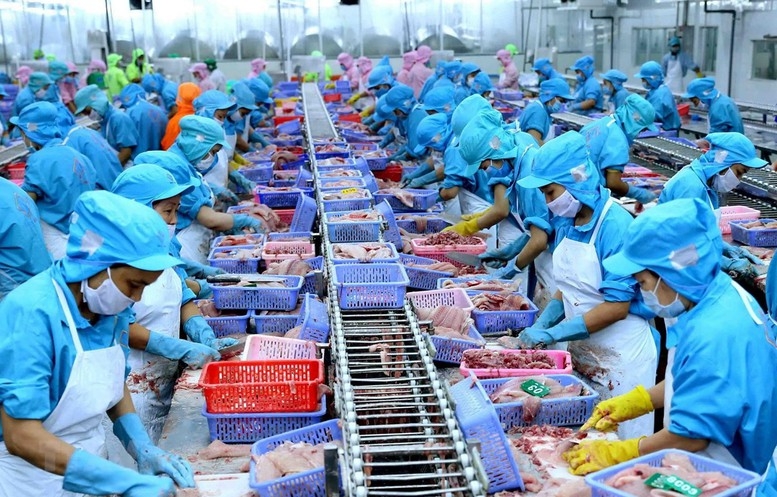Nguyen Thi Hoang Thuy, Head of the Vietnam Trade Office in Sweden cum the Nordic countries (including Denmark), emphasized that after the COVID-19 pandemic, two-way trade turnover between the two countries dropped and has shown signs of recovery since 2022.
The country’s major export items to Denmark remain traditional items in which the Vietnamese side has strengths, such as garments and textiles, electronic components, furniture, iron and steel, footwear, and seafood.
Most notably, two-way trade turnover during the reviewed period increased significantly by 20.3% on-year to reach US$614 million.
Accordingly, exports to Denmark surged by 27.4% to US$400 million, while imports from this market edged up 9% to hit US$213 million.
In particular, iron and steel products recorded the sharpest rise of 104.7%, followed by furniture products with 62.5%, seafood with 27.7%, and garments and textiles with 3.2%.
Thuy attributed this level of robust growth in two-way trade turnover to comprehensive co-operation occurring in multiple fields over recent years, especially since the two countries established the Comprehensive Partnership and Green Strategic Partnership.
However, she pointed out that Vietnam is currently facing fierce competition from a number of countries when it comes to promoting trade and investment ties with Denmark.
Moreover, countries such as Thailand, Indonesia, Malaysia, and China have deployed effective measures as they seek to open the market, intensify trade promotion activities, and attract investment from Denmark.
Therefore, Vietnam is required to devise a suitable strategy to enhance trade and investment co-operation with Denmark, develop a national brand, organise direct trade promotion events, and focus on developing products with high added value, all of which will help the country to compete more effectively in the global market.
In addition, the representative from the Vietnam Trade Office in Sweden stated that businesses of both sides need to ramp up co-operation in the fields of green technology, renewable energy and sustainable production.
Moreover, Vietnam should strive to utilise opportunities from the existing the EU-Vietnam Free Trade Agreement (EVFTA) and create favourable conditions for businesses as they strengthen connectivity and invest more deeply moving forward.



